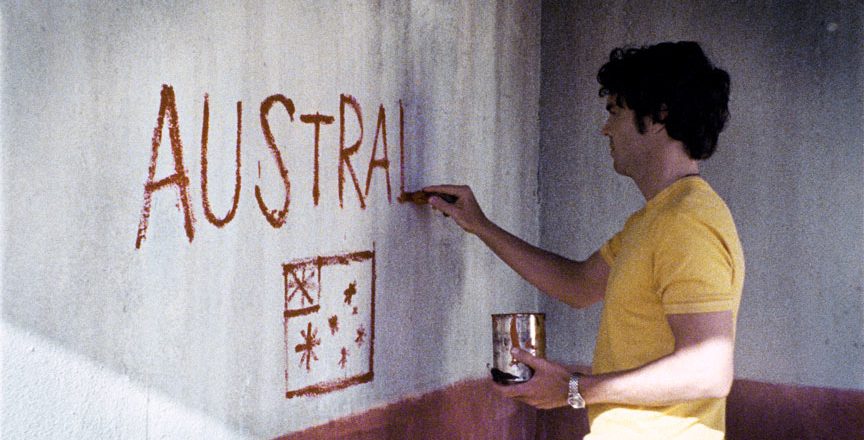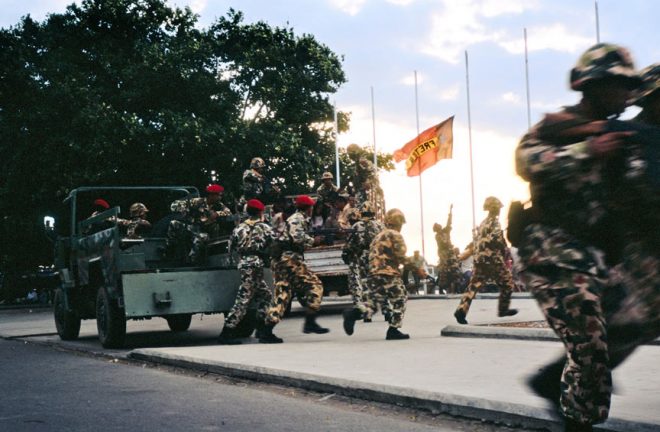
On the 45th anniversary of the Balibo 5 murders, Australia’s secret intelligence service still refuses to publicly reveal what it knows, writes Clinton Fernandes.
If a country’s policymakers didn’t have to make compromises because they were overwhelmingly powerful compared to other countries, what goals would they pursue? In the case of Australia, we have information that sheds light on these questions. A study of Australia’s relations with Timor-Leste is valuable because we can learn how Australian governments would act everywhere if they enjoyed a similar disparity of power. In Timor-Leste, the goal was to deny the tiny country billions of dollars of oil and gas wealth.
In 1975, the Indonesian military was conducting a terror campaign against Portuguese Timor, as it was then called. Its aim was to seize pieces of Timorese territory, mount offensive actions from them and make the Timorese position untenable. Under the pretext of ‘restoring order,’ Indonesia expected to enter the territory overtly and annex it.
The Timorese resistance was centred around an Indigenous organisation known as FRETILIN, the Revolutionary Front for an Independent East Timor. Indonesia described FRETILIN as communists – a useful justification during the Cold War.
In reality, as Australian intelligence reported, “few members of the Central Committee seemed familiar with Marxist philosophy.” Instead, its key leaders “seemed to have been deeply committed to the development of cooperatives in commerce and agriculture as a means of improving the living standards and economic power of the Indigenous Timorese.” Out of the ten FRETILIN leaders, four were practising Catholics who went to mass every day.
Indonesian officials told Australian diplomats in September 1975 (as they stepped up their military intrusions) that Indonesian President Suharto had authorised sending up to 3,800 Indonesian soldiers to Portuguese Timor. The Australian Embassy commented that this plan “represents a significant escalation of Indonesian involvement in Portuguese Timor.” The Indonesians provided more information about the covert operation:
“The main thrust of the operation would be through Balibo and Maliana/Atsabe… Suharto had recently approved a special budget for the Portuguese Timor operation … [he] had made it clear that ‘no Indonesian flag’ could ever be used in the operation.”
The details kept coming. Indonesian forces would be dressed as members of the anti-FRETILIN force: “The President’s policy will be to deny any reports of the presence of Indonesian forces in Portuguese Timor.”
Australian diplomats remarked that the Indonesian intelligence agent feeding them the information had been “extraordinarily frank” and “we have no reason to doubt that he is and has been giving us accurate information.”
Five Australian journalists entered this danger zone. Reporter Greg Shackleton, sound recordist Tony Stewart and cameraman Cary Cunningham worked for Channel 7. Reporter Malcolm Rennie and cameraman Brian Peters worked for Channel 9. They were all in their twenties. The two crews arrived in Timor separately but linked up at the small village of Balibo near the western border with Indonesia. They would have exposed the Indonesian military’s covert activities. Indonesian special forces captured them on 16 October 1975 and murdered them.
Indonesia launched a full-scale invasion of Portuguese Timor in December and occupied the territory for 24 years. Australia became the only Western country to recognise de jure the Indonesian annexation.

The two countries signed the Timor Gap Treaty in December 1989, giving Australia control of Timor’s oil. In 2004, soon after Timor became independent, Australia mounted an espionage operation to swindle the Timorese during negotiations over oil and gas revenues — Petroleum has always been a major factor in Australia’s dealings with Timor-Leste. At the time of writing, two Australians are facing prosecution for their alleged role in disclosing information about this espionage operation.
In 2007, a NSW coronial inquest into the Balibo killings concluded that the Indonesians dressed the corpses in military uniforms, placed guns beside them, and took photographs of them in an attempt to portray them as legitimate targets. The Department of Foreign Affairs and Trade intervened in this inquest to protect one of the suspects in the murders, who had been coincidentally visiting Sydney.
The Australian Secret Intelligence Service (ASIS) refuses to disclose its knowledge of the events surrounding the murders at Balibo. What did ASIS know beforehand? Could the journalists have been warned not to go to Balibo? Serious questions remain about an ongoing coverup. The answers to this question lie in the archival record.
In a case at the Administrative Appeals Tribunal (AAT), ASIS first claimed that to even confirm or deny the existence of ASIS records about Portuguese Timor in 1975 would “cause damage to the security, defence or international relations of the Commonwealth.” It later admitted it possessed such records but insisted on continuing non-disclosure. Attorney-General Christian Porter issued a public interest certificate allowing ASIS to make its arguments in secret.
The full extent of Australian diplomatic complicity or even collaboration in the Balibo 5 murders remains a secret. It will take a political decision by a future Australian government to come clean and declassify the records. The killers have been identified but have never faced justice.
The Balibo episode is a valuable illustration of the real goals and values of Australian policymakers. Where they enjoy a massive advantage in power, as they did with Timor-Leste, the goal is to take what rightfully belongs to another country. The principles and values underpinning this goal are worth contemplating, especially for citizens who enjoy freedom, privilege, and opportunity to do so.


